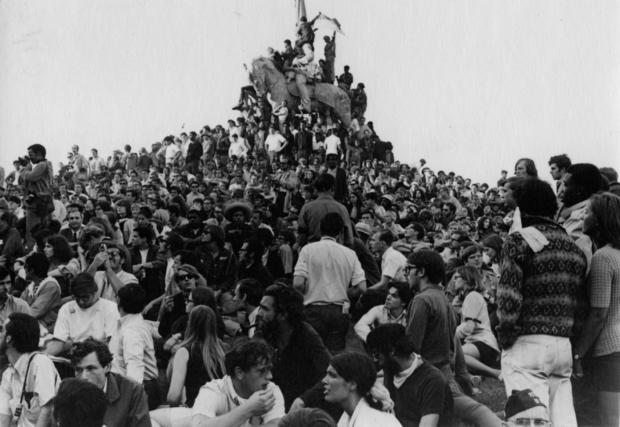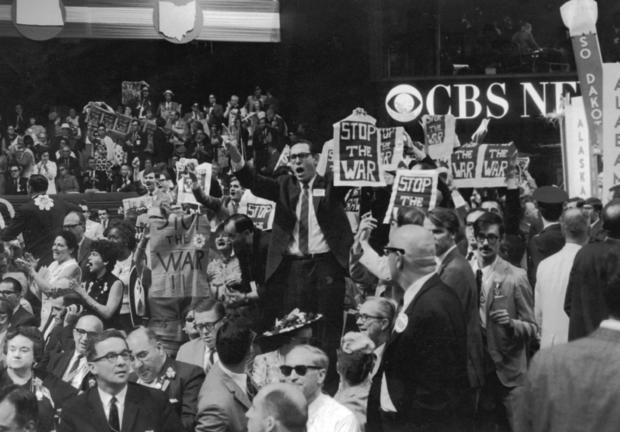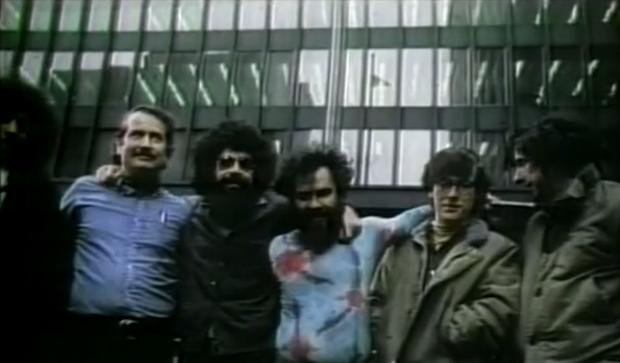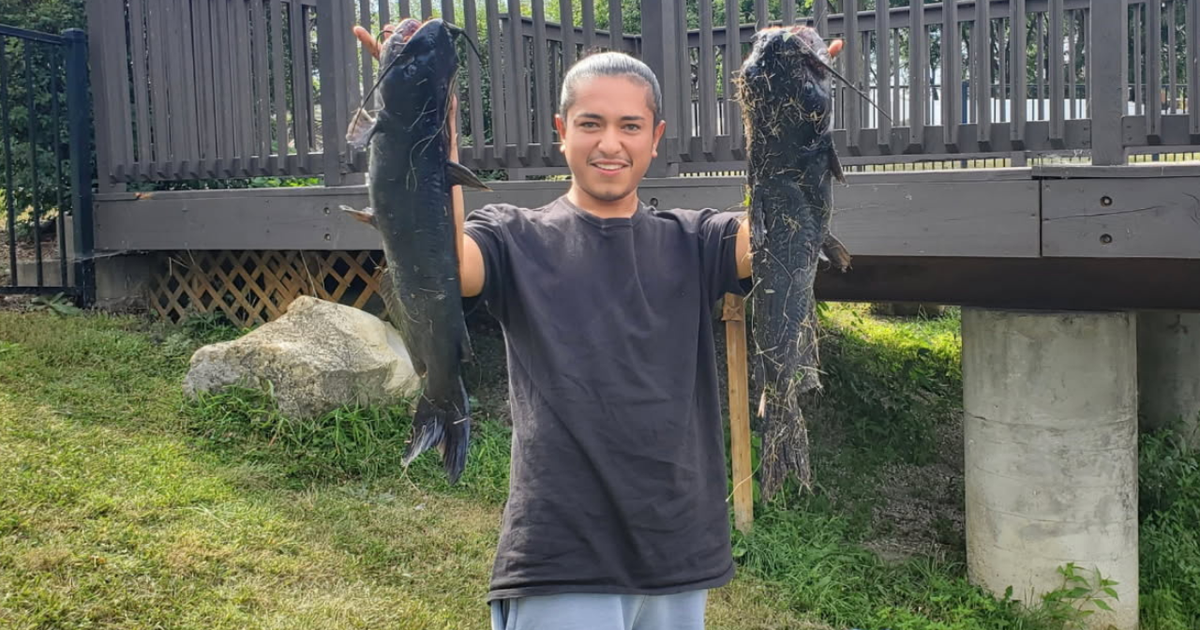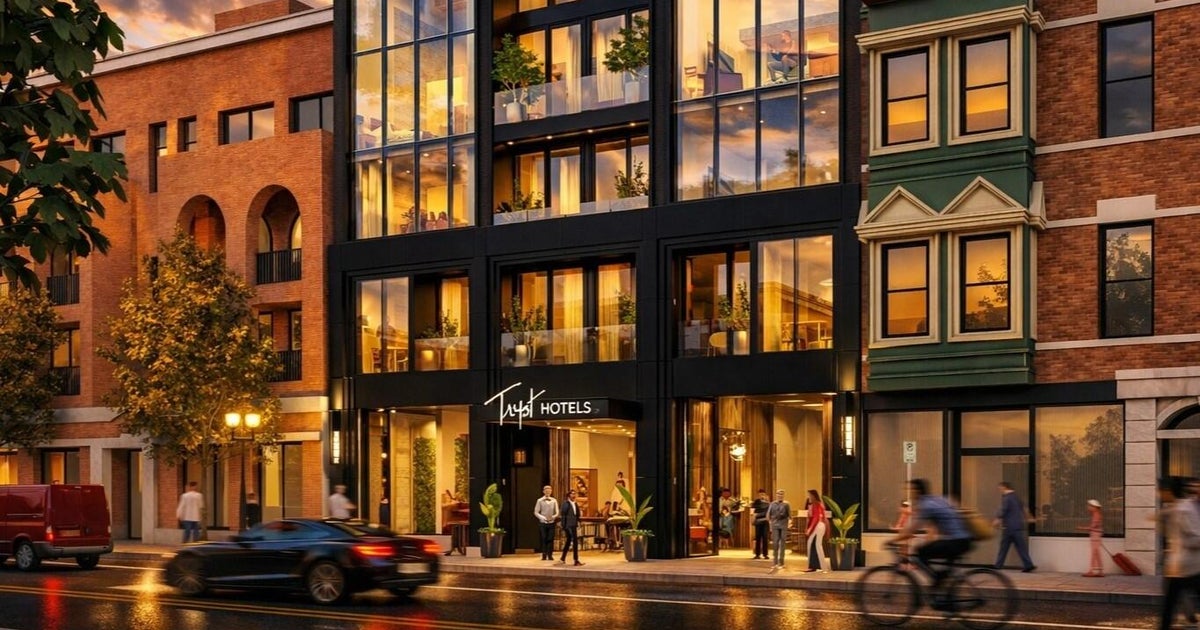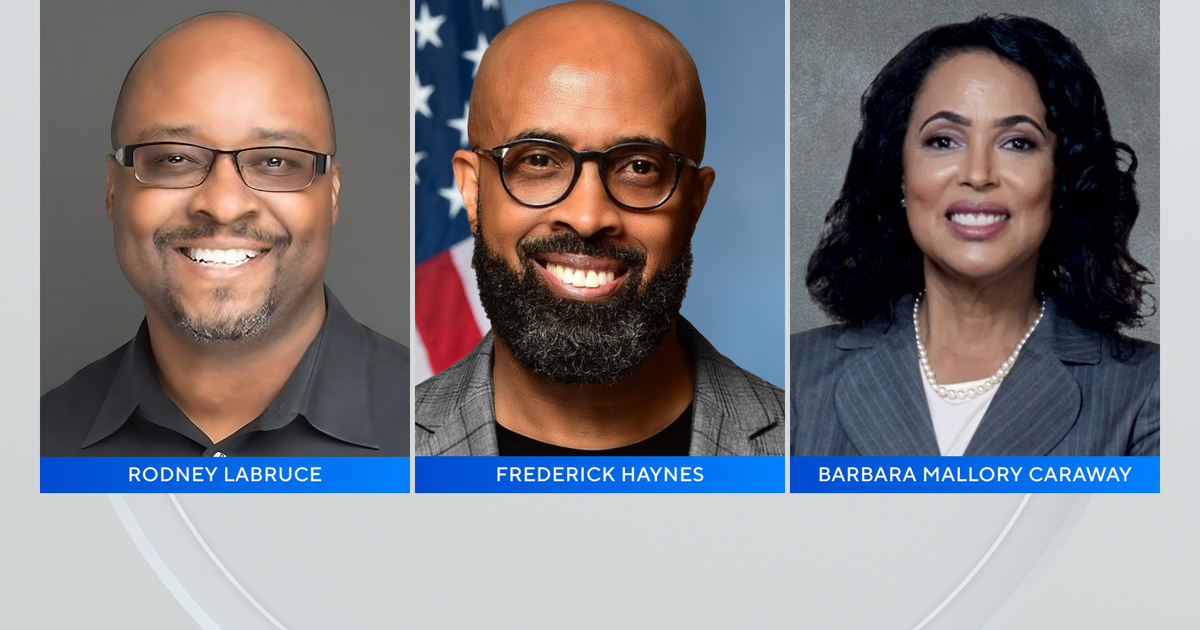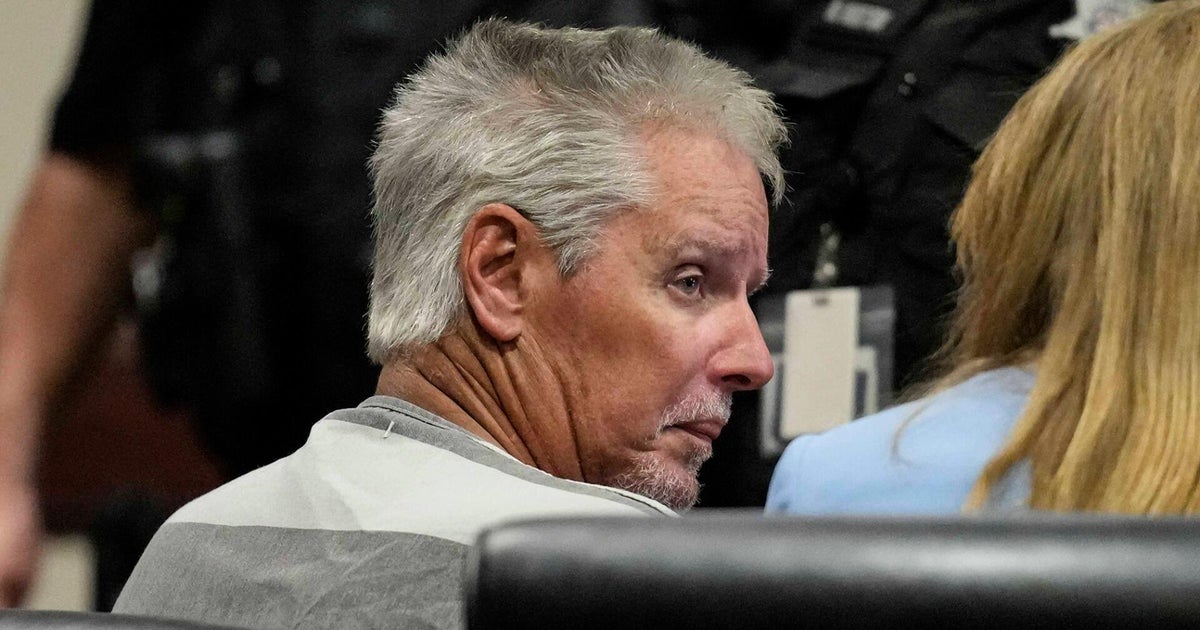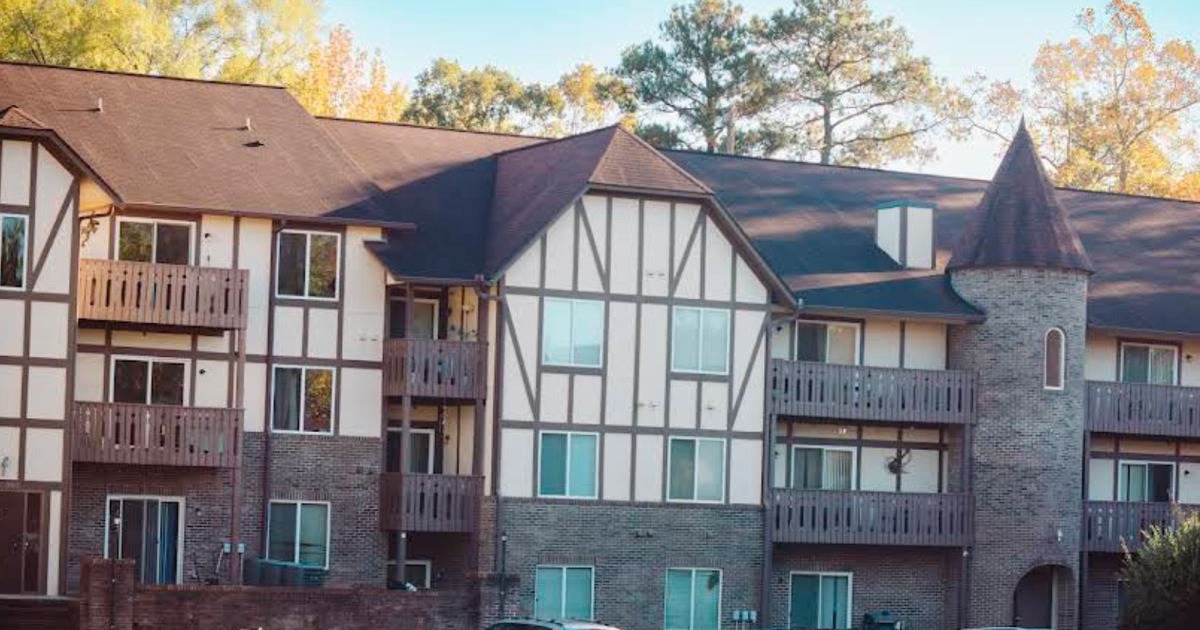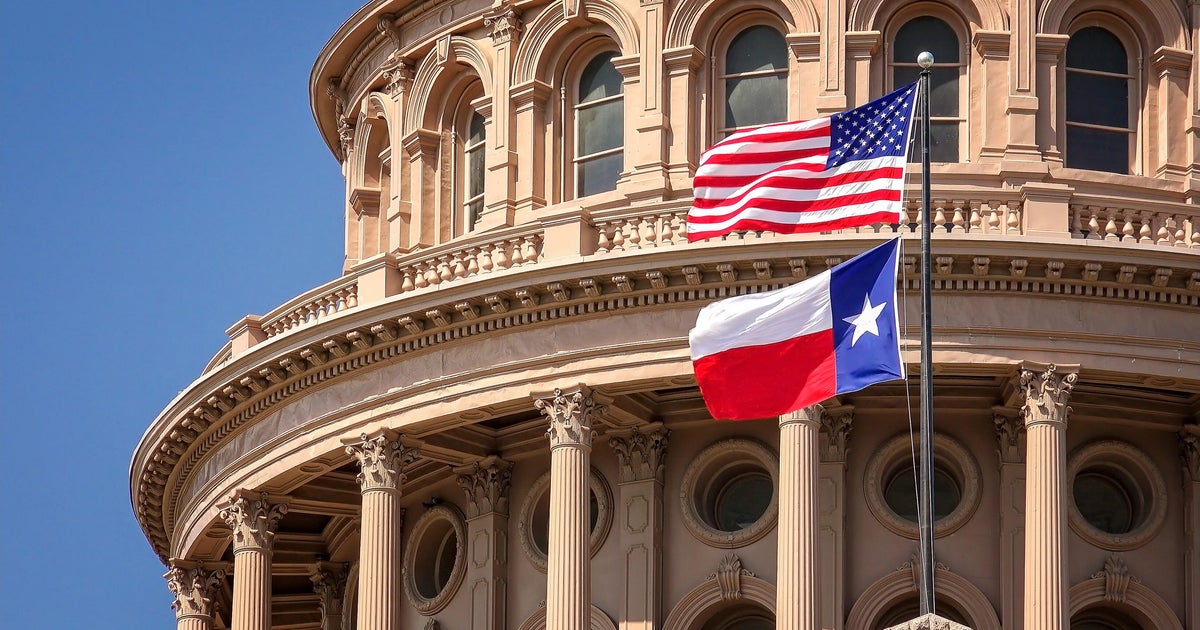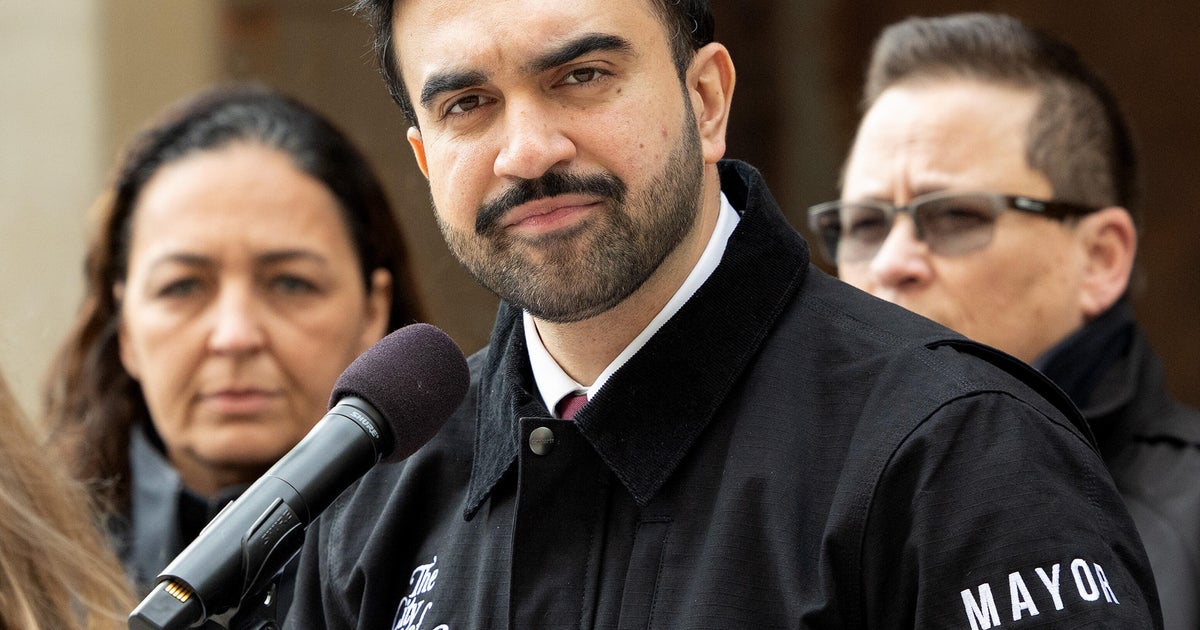The 1968 Democratic National Convention: An event that lives in infamy in Chicago
CHICAGO (CBS) -- The Democratic National Committee announced Tuesday that Chicago will be the host for the 2024 Democratic National Convention.
The 2024 convention will mark 28 years since Chicago last hosted a Democratic National Convention – and 56 since a Democratic National Convention put Chicago on the world stage in perhaps the most unflattering way imaginable.
The 1968 Democratic National Convention took place from Aug. 26 through Aug. 29 of that year. At that point, Chicago had already experienced two major riots in less than a year, the most recent earlier in 1968 following the assassination of Dr. Martin Luther King Jr. During the riots earlier in 1968 – which largely took place on the city's West Side – then-Mayor Richard J. Daley gave his infamous order to "shoot to kill arsonists" and "shoot to maim looters."
The country was also deeply divided over the Vietnam War – with the death toll growing each week and the opposition along with it.
As CBS 2's Bill Kurtis reported for a 20th-anniversary special back in 1988, it was with that backdrop that the Democrats decided to hold their national convention in Chicago. Threats and rumors by some antiwar leaders to disrupt the convention were met by stern security measures from Mayor Richard J. Daley's City Hall.
Jim Rochford, deputy Chicago Police superintendent in 1968, said 20 years later that there had been a fear of what the demonstrators would do – that they might "poison the water, blow up this, and kill the presidential candidates – and so those rumors helped to create some uneasiness on the part of the police."
Meetings were held between the leaders of the demonstrations and the Mayor's office, which Rochford said did not go well. But those involved in the protest did not agree on who was to blame for the discord.
"It really was a group of organizers and antiwar activists who wanted to come to the Democratic Party to create a public that could be heard, with a message that we thought had tremendous moral urgency – and I think we were right. I mean, I still think that we were right about that," Bill Ayers, a member of Students for a Democratic Society and a founder of the Weather Underground, who went on to become a professor of education at the University of Illinois at Chicago, said in 1988. "And there really was a Mayor Daley who wanted to show that in the face of what he perceived to be anarchy and the breakdown of everything he believed in, was really going to stand firm – and really going to represent what he thought was the best in kind of the American tradition. And so those things really did clash."
It culminated in horrifyingly violent skirmishes between demonstrators and police. Peter Hayward, a college student in 1968 and a university administrator 20 years later, recalled a scene of mayhem and horror at a demonstration outside the old Petrillo Band Shell.
"Cops on motorcycles – on those three-wheeled motorcycles – just driving us north. I saw some kids fall down – in a panic to see this kind of thing happening – and the National Guard just walking over them, and the motorcycle cops showing absolutely no respect for the fact that these people were lying there. I won't say they ran over them at that point, but they did later," Hayward said. "And that's when it just got crazy, because there were more motorcycle cops up there. They started beating the kids, and there was lots and lots of tear gas everywhere – and that's when I first got hit, and I decided that this was absolutely insane. I ran into the Loop and they beat me up at that time."
In our 1988 documentary, retired police patrolman Raymond Conley described having rocks thrown at him, human waste in plastic bags the demonstrators were threatening to throw, and beer glasses being dropped out of the Chicago Hilton & Towers.
But demonstrators have maintained the police were the aggressors – though some recounted fighting back against officers.
"The police moved on people. I mean, I know in my own life, in that period of the Democratic Convention, anything I did in relationship to the police came after they came after us. There was a lot of tear gas, and there were a lot of police squadrols whipping into a crowd of people – and things were pretty heated up," Michael James, a college student in 1968 and later co-founder of the old Heartland Café in Rogers Park, told Kurtis in 1988. "And I remember, with several other people, rocking this paddy wagon or squadrol. I remember this police officer coming out of the car and grabbing us – grabbing me – and I took him down. And I remember looking at his gun, all right? And then I remember just saying, 'Uh-uh.' I don't want any part of grabbing this guy's gun or anything. And that was it. So we never tipped the paddy wagon over. When I got jumped by a police officer, I turned the tables on him – and I left."
CBS News cameraman Del Hall said he wasn't doing anything wrong during a march, but wound up on the wrong end of a police baton.
"I really believe I was the first person hit. I was not the last person," Hall told CBS News' Dean Reynolds in 2018.
Monroe Anderson – then an intern for Newsweek and later CBS 2's director of community affairs – said he and his colleagues were beaten by police in Lincoln Park when the officers knew they were reporters.
"I had the dubious honor of being one of the first journalists to be beaten up by the Chicago Police. It was a very strange situation – we run into this yard where Hermon Baptist Church was located (at 1754 N. Clark St.)," Anderson said in 1988, when he was working as press secretary for Mayor Eugene Sawyer. "Police come up to the gate and say to us, 'Come out of there, expletive deleted.' And as we walked through the gate, they beat us with the nightsticks. We had press credentials. We had riot helmets on."
Meanwhile at the Democratic convention several miles away at the International Amphitheatre, which stood until 1999 at 4220 S. Halsted St., reporters were roughed up and anchors were ruffled.
CBS News correspondent Dan Rather was roughed up by security guards at the convention, while Mayor Daley Sr. told CBS Evening News anchor Walter Cronkite that police officers were being attacked in the streets.
Outgoing Chicago Ald. Ed Burke (14th) was a police officer inside the Amphitheatre when the convention was going on.
"A tea kettle has to let off steam some place, and I think the nation let off that steam here in the heartland in Chicago," Burke said in 2018.
The national news media was appalled – and in remarks from the CBS News booth at the Amphitheatre, Cronkite was clear about what he believed to be the source of the aggression.
"The Democratic Convention is about to begin in a police state," Cronkite said. "There isn't any other way to say it."
But Frank Sullivan, who had been the Chicago Police spokesman in 1968, said in 1988 that most Chicagoans went on about their business during the convention – and blamed a "prejudicial" news media for the perception of the CPD's actions.
A federal commission led by Dan Walker, a prominent Chicago lawyer who went on to be elected Illinois governor -- and then to be convicted of bank fraud and perjury -- characterized the unrest of 1968 as a police riot.
Speaking in 1988, Sullivan disputed this characterization – saying police were protecting the city against a group trying to take over the streets.
"Dan Walker talking about the police riots missed the whole point. A group came expressly to have a confrontation with the police; to try to point up their case about the War in Vietnam," Sullivan said in 1988. "We didn't have any position regarding the War in Vietnam, but we just don't allow anybody to take over the streets to the city. And so by trying to do so, they provoked a battle. They lost, and they lost also ultimately in the PR battle."
At the convention, Hubert Humphrey was ultimately nominated as the Democratic presidential candidate. He lost to Republican Richard M. Nixon.
Meanwhile, federal prosecutors went on to charge eight organizers of the protests during the 1968 Democratic National Convention in Chicago – Jerry Rubin, Abbie Hoffman, Tom Hayden, Rennie Davis, Bobby Seale, Lee Weiner, John Froines, and David Dellinger – with crossing state lines to incite a riot.
Seale's case was declared a mistrial, and the Chicago Eight became the Chicago Seven. Five of the defendants were convicted at trial, but eventually, all the convictions were overturned.
WATCH: 'The Whole World's Watching: 20 Years Later,' A CBS 2 Documentary
Part I
Part II
Part III
Part IV
Part V
Meanwhile, the 1968 Democratic National Convention has now lived in infamy for nearly 55 years. It was not until 1996 that Chicago hosted another political convention – and even 28 years after the 1968 convention, there was some anxiety leading up to the DNC that year at the United Center.
But these days, that 1996 convention is perhaps best remembered for an innocent and comical moment in which the delegates did the Macarena as First Lady and future Secretary of State Hillary Rodham Clinton clapped along. And President Bill Clinton had only good things to say about Chicago in his 1996 acceptance speech for renomination.
"I love Chicago for many reasons – for your powerful spirit, your sports teams, your lively politics – but most of all, for the love and light my life, Chicago's daughter, Hillary," Mr. Clinton said in his acceptance speech that night.
In 2024, the convention will return – separated as far in time from 1996 as 1996 was from 1968. This time around, the tone among political and business leaders is one of hopeful anticipation rather than anxiety.
As Mayor Lori Lightfoot gets ready to leave office, she is counting the announcement as a political victory.
"I am deeply honored that President Biden and the DNC have chosen Chicago," Mayor Lightfoot said in a statement. "I want to commend all the City government leaders who demonstrated with a proven track record of excellence that by choosing Chicago, the DNC, convention delegates, volunteers and others would be treated to a first class experience in our world class city. The DNC will create once-in-a-generation opportunities for job creation and business growth here in our city, and I'm proud that we got it done for the people of Chicago."
Mayor-elect Brandon Johnson, who will be sworn in on May 15, said he looks forward to working with the DNC to facilitate the convention to showcase the city.
"Chicago is a world-class city that looks like America and demonstrates the values of the Democratic Party," Johnson said in a statement. "We are unmatched when it comes to hosting events of this scale."
Chicago also hosted the Republican National Convention in 1960, the Democratic National Convention in 1956, and both the Democratic and Republican conventions in 1952 and 1944 – among other conventions going back to the 1860 Republican National Convention at which Abraham Lincoln was nominated.
Some film from the 1952 Republican and Democratic national conventions can be seen below.

